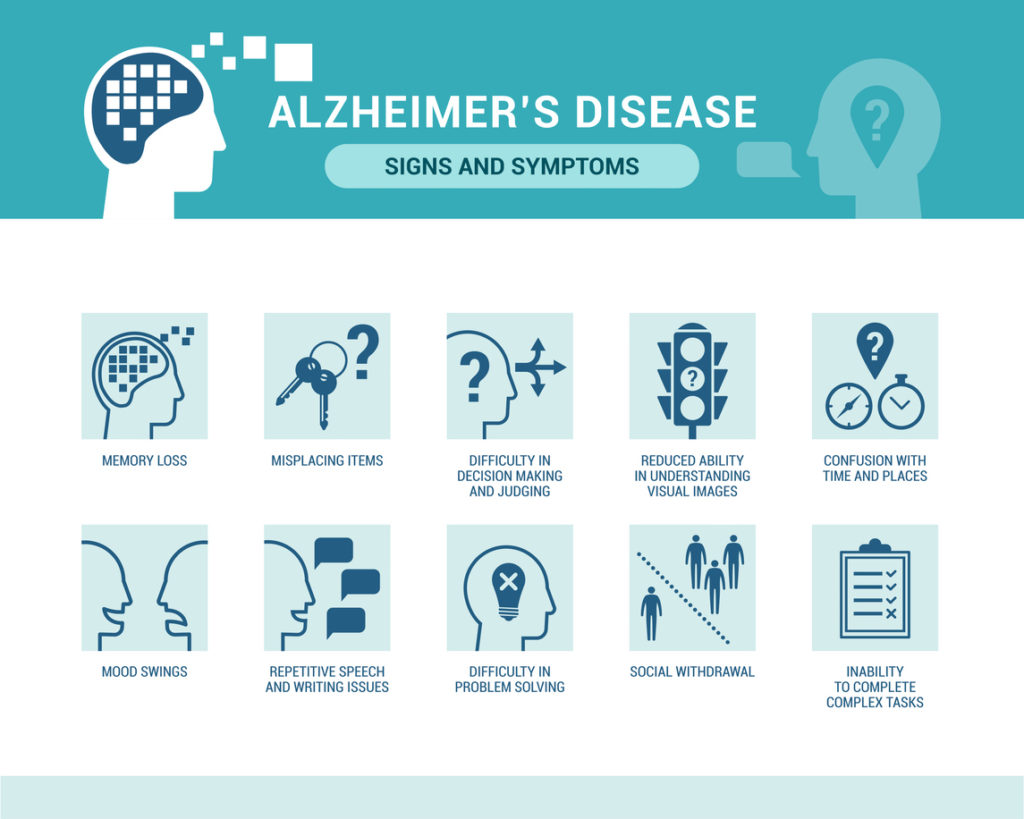Guest Author: Catherine Mossop

Dementia is like Lyme’s disease – you don’t notice it at first. We may be slightly disturbed by the tick, but just dismiss it as no more consequence than a mosquito bite; then later we start having mild symptoms of rash, headache, fever, tiredness, common symptoms of many other infectious diseases, but we don’t associate those with the earlier bite; and later, too late, we discover we have Lyme’s Disease. Who knew dementia was like that, that we ignore the early signs? Not me. Who pays attention to the small changes? Not me – Brian is the love of my life, and I can easily accommodate when he asks me repeatedly what time is it, even while holding his cell phone. For us, the first five years of his affliction were high-functioning, not noticeably affecting his work, or our lives. In fact, it was through a long period of adopting tactical accommodation, almost unconsciously, that we negated indicators of Mild Cognitive Impairment (an early phase that might or might not develop to Alzheimer’s Disease). Then, suddenly, all at once, it seemed, Brian stepped off the cliff: we could no longer deny the symptoms of disease.
Still, diagnosis took a long time. Mild Cognitive Decline, as early signs of dementia are called, are so common to the aging process we miss that this might be the beginning of a serious ailment.
Mild Cognitive Decline – It showed up in the most innocent of conversations. Brian was heading out to see our family doctor for his annual pre-cardiac check-up (he was born with a heart condition that is repairable at the right time); nothing to raise an ounce of concern – he was remarkably healthy, and took his heart health seriously. On that day, I had been speaking with a friend about how our brains become so full they runneth over, and struggle at times to find the missing word. As Brian was going out the door, I said ‘oh! by the way’ ask the doctor about it [memory] when you see him this afternoon.” Later, he returned with the regular lab test forms, and he said he was going to get a call from a clinic at Sunnybrook. Again, nothing to see here – he had been to a clinic at Sunnybrook in his life before me. But one of the early signs of cognitive impairment is misremembering and confusion, so common to everyday behaviour, and so not surprisingly, I didn’t pay attention when he merely reported that the doctor said, “I am perfectly fine!”
Some months later Brian went to his referral appointment. But the call had not been from Sunnybrook. Brian came home from his appointment only to tell me he had been at The Toronto Memory Clinic, that he couldn’t count backward by 7s and they therefore said he had Mild Cognitive Decline and should go back again in a year. He was pretty upset, so to de-escalate, I responded, “well then I’m even worse because I can’t even count forward by 7s without a calculator.”
My then limited knowledge of Alzheimer’s was mostly received via the popular press. Mild Cognitive Decline, while a very early indicator of Alzheimer’s or other Dementia Diseases, can also be a normal process of decline with aging. While I became increasingly concerned about the changes Brian was experiencing, he adamantly refused my self-invitations to see his doctor again. I didn’t know about Anosognosia.
I never heard from the clinic. Nobody called me and said anything like, ‘please attend the clinic with your husband, he is going to be assessed for Cognitive Decline. But in all fairness, they could have been calling Brian’s phone and I would never have known. And that was the end of that – or so I thought.
Some people can stay at Mild Cognitive Decline for their entire lives, while others will worsen at varying speeds onto more formidable Dementias. Brian, with Mild Cognitive Decline, continued to work, play music, and lead an active enjoyable life. For three years we lived with this condition, but largely ignored it: we had a wonderful time filled with projects, friends, a few vacations, great food, music and fun – we were incredibly happy. Yet in hindsight, I realize we had created adaptive strategies that kept Early Onset Alzheimer’s hiding in the wings. But eventually it became impossible to ignore these signs.

And what about Brian?
- He stopped paying the bills – easy for me to assume that family responsibility. I own a business and am disciplined about paying bills;
- He stopped doing his taxes – I just assumed he was tired of paying taxes after a lifetime of doing it; no problem, I can do taxes;
- He wrote everything in his notebook – He always wrote everything in his notebooks; I only recently noticed he wrote his name and phone number every time he turned the page;
- He purchased the same groceries every week regardless of whether or not we needed them – I began making lists and he stuck to the list;
- He used navigation tools for every drive even when he knew the region well – I thought, Google Maps was cool;
- He constantly wanted to change houses – During his decline we changed house five times, from Toronto to Whitby, to Courtice, to Roseneath, and finally to Cobourg to be closer to adequate health care providers. I didn’t see this as restless energy; it was fun looking at properties and we worked well together when renovating;
- He began to avoid leaving the house – I thought it was Covid isolation;
- He couldn’t recognize landmarks when we were visiting other places – I thought he just wanted me, the experienced traveler, to play tour guide;
- His interest in doing the things he loved, declined – this was it! When he didn’t want to ride his bike I knew, something was off!
- He began to show frustration and randomly self-escalated anger – I thought it was social isolation, the stress of moving to yet another house to be renovated, and the job loss from Covid. This was a significant personality change – an AH HA! moment. Something is seriously not right. It was as if a sledgehammer had dropped on my toe. (Oddly, I actually own a 3-pound sledgehammer.) A shocking and painful realization that this was more than ‘something is just not right’, we are no longer safe.
As I became increasingly aware of Brian’s changing condition, I couldn’t get adequate attention from the health care system, and even then, it was only after much advocacy, cajoling, manipulating, inventing, and kind of lying, that I was able to get somewhere. That process took persistence, determination, emotional fortitude, conviction to scale invisible mountains, to stick with it.
It wasn’t just the health system that frustrated my efforts to figure out what was going on with my husband’s behavioural changes. I’d discuss Brian’s changes with other close family members and met with various forms of resistance and denial. They seemed to think I was exaggerating things – ‘there’s nothing wrong with Brian’ they’d say, though I have to think they must have been worried too. Except for the support of his son, I felt I was alone in my worry and efforts to get to the bottom of Brian’s condition.
Retrospectively, it is unbelievable that it took three more years to get a diagnosis beyond Mild Cognitive Decline, and learning that things I had never heard of, Anosognosia, Aphasia, Agitation, Amnesia, now reigned large – LARGE – in my life.
There are 7-A’s of Alzheimer’s Dementia and considerable variation in how the A’s show up. Not all Alzheimer’s people experience all of them. Some experience a bit of one, a ton of another, and none of another – it is unpredictable and changeable. Around the same time as Brian’s deteriorating condition, actor Bruce Willis was diagnosed with Aphasia Dementia (prior to his disease being identified as Frontal Temporal Dementia). So, with Entertainment Tonight as my source, it seemed Brian was the same as Bruce Willis, (not really, but it worked for me for a few months). I will attest to the damage that can be caused by hearsay, and quick snippets on pushed social media content.
The 7-A’s of Alzheimer’s (If you are concerned, read about them through the Alzheimer’s Society or a reputable medical source like the Cleveland Clinic.):
- Anosognosia – lack of self-awareness; refuse to recognize cognitive decline and refuse to attend medical appointments – “it isn’t me”, “there is nothing wrong with me” ‘It is you – you are crazy”.
- Agnosia – loss of ability to recognize previously familiar things and people.
- Aphasia – loss of ability to speak, understand others, follow conversations, remember words or have the correct words, read or write.
- Apraxia – loss of motor skills – anything from buttoning a shirt, using a knife and fork, to loss of coordinated movement.
- Altered perception – not being able to tell the difference between familiar things such as a doormat or a gaping hole in the floor. Paranoia and delusions included here.
- Amnesia – not just loss of memory, difficulties with problem-solving, judgment, language, engaging in activities that were once enjoyed, easily become agitated, repetitive questions.
- Apathy – loss of interest, withdrawal from family and social activities, not wanting to participate and disengaged.
Nothing prepared me for this. NOTHING. So now what? My awesome life partner had turned into some random ‘angry bird’. And so, my journey of research and advocacy began with reading about the progression of Mild Cognitive Decline – clearly, Brian was now on the Dementia pathway. But also understanding that I’m on the pathway of a pain that doesn’t heal and crying in the shower doesn’t relieve.
What began as innocent loss of ordinary memory progressed over 5-years into a total debilitating disease. And unlike Lyme’s disease, there is no cure.
In my next post I’ll narrate the day the cliff of Brian’s decline could no longer be denied; and in a future post I want to talk more about suffering – not about the suffering the Dementia-afflicted may experience, but the suffering the close family members and friends, and the spouse, suffer as they try to cope with living grief.
Catherine Mossop, reporting to you from Cobourg, Ontario
© Douglas Jordan & Catherine Mossop, AFS Publishing
All rights reserved. No part of these blogs and newsletters may be reproduced without the express permission of the author and/or the publisher, except upon payment of a small royalty, 5¢.
